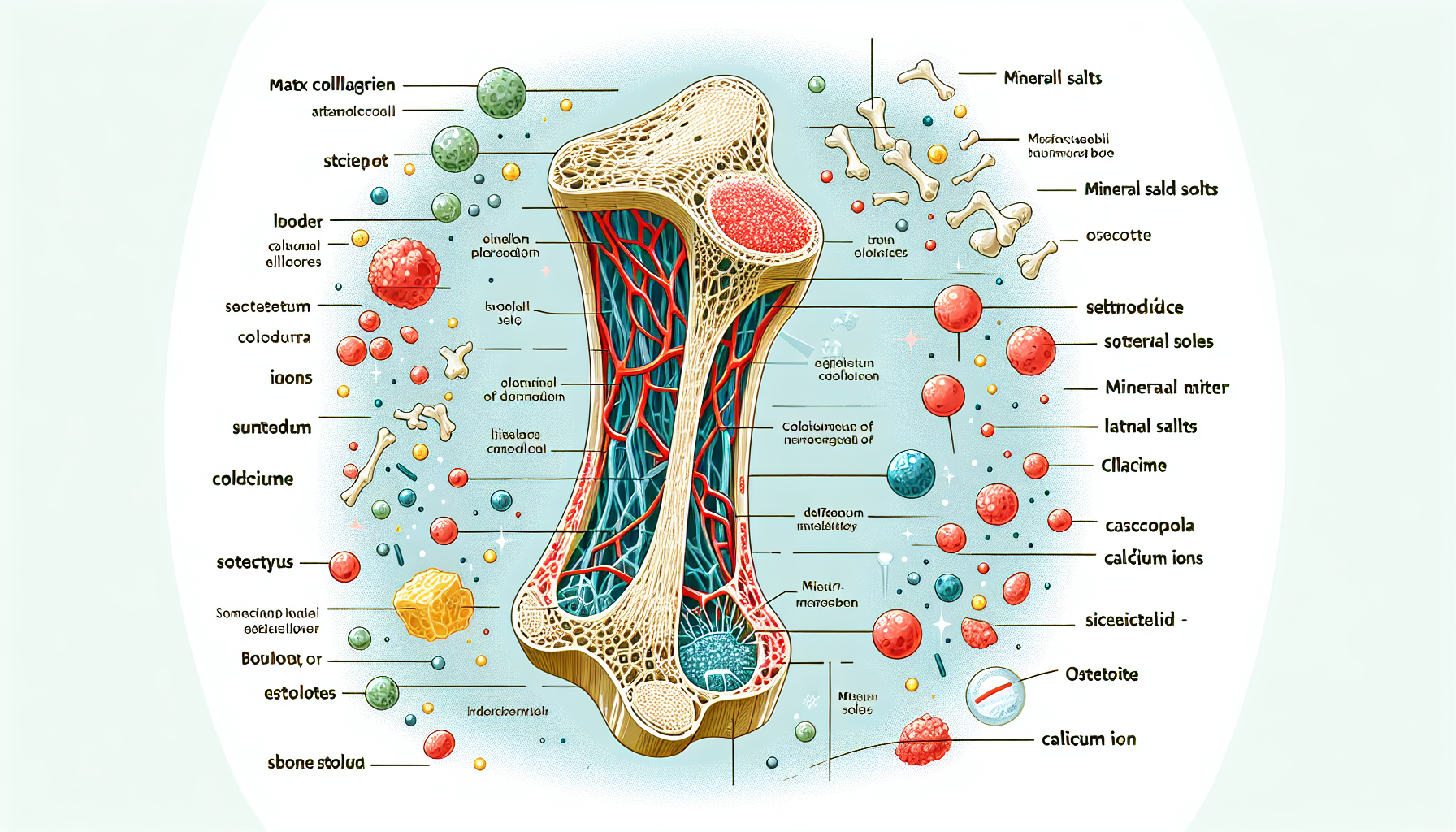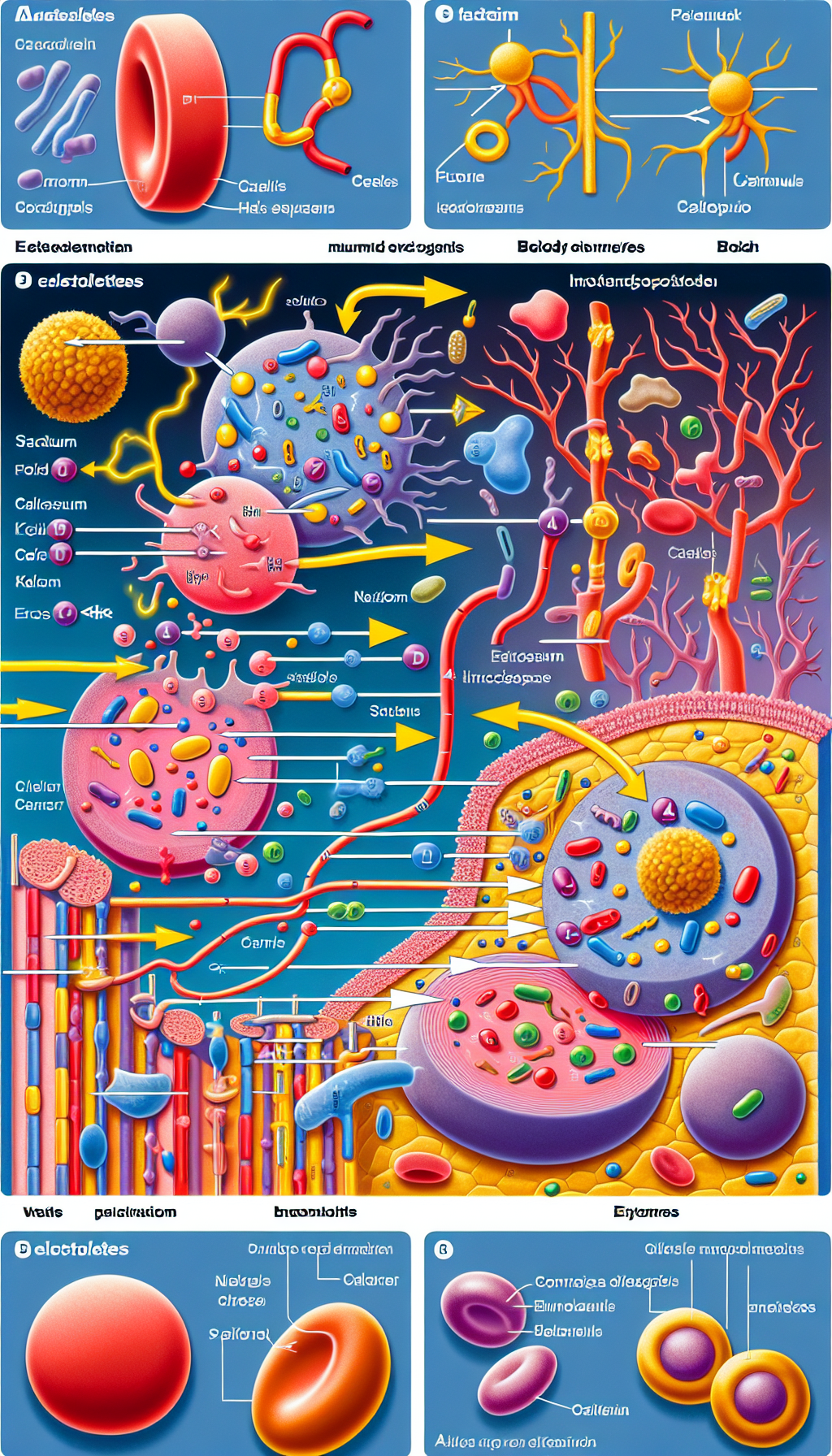Bone health is a crucial aspect of overall well-being, yet it is often overlooked until problems arise. Understanding the intricate connection between bone health and electrolyte balance is essential for maintaining a strong skeletal system throughout your life. This comprehensive exploration will delve into the physiological processes that underline this connection and offer actionable advice for safeguarding your bone health.
The Role of Electrolytes in Bone Health
Electrolytes are minerals with an electric charge, found in your blood, urine, tissues, and other body fluids. These include calcium, potassium, sodium, and magnesium, all of which are vital for various bodily functions, including the maintenance of healthy bones.
Calcium is the most abundant mineral in the body and is essential for strong bones and teeth. It plays a pivotal role in muscle function, nerve signaling, and blood clotting. As such, maintaining proper calcium levels is critical for bone health. Potassium and magnesium also contribute to bone density and strength, with research suggesting their involvement in bone mineralization and the regulation of calcium balance.
The Calcium-Potassium Partnership
Calcium and potassium work in tandem to ensure that the calcium you consume is effectively utilized for bone health. Potassium helps neutralize metabolic acids that can deplete calcium stores in bones, thus protecting against bone loss. For a deeper understanding of the importance of calcium in your diet, consider reading about Dairy Alternatives for Lactose Intolerant Individuals Seeking Calcium.
Magnesium’s Multifaceted Role
Magnesium is another key player in bone health. It assists with the conversion of vitamin D into its active form, which is necessary for calcium absorption. Moreover, magnesium influences the activity of osteoblasts and osteoclasts, the cells responsible for bone formation and resorption, respectively.
Electrolyte Imbalance and Its Impact on Bones
An imbalance in electrolytes can lead to various health issues, including compromised bone health. For instance, excess sodium can increase calcium excretion, which might weaken bones over time. Conversely, low levels of magnesium can impair calcium metabolism and vitamin D activation, potentially leading to bone density reduction.
Chronic Conditions and Electrolyte Balance
Certain chronic conditions, such as kidney disease or hormonal imbalances, can disrupt electrolyte levels and, subsequently, bone density. For individuals managing long-term health conditions, understanding the Impact of Bariatric Surgery on Bone Density: Long-Term Outcomes may provide valuable insights into the complex relationship between health interventions and bone integrity.
Strategies for Maintaining Electrolyte Balance for Bone Health
Maintaining electrolyte balance is not only about consuming the right minerals but also about ensuring they’re appropriately balanced and that the body can effectively use them. Here are some strategies to help you maintain this balance:
Diet and Hydration
A balanced diet rich in calcium, potassium, and magnesium is essential. Leafy greens, nuts, seeds, and dairy products are excellent sources of these minerals. Hydration also plays a critical role in maintaining electrolyte balance. Read about The Importance of Hydration for Bone Health to grasp how adequate fluid intake supports your skeletal system.
Regular Exercise
Weight-bearing exercises and strength training can help maintain bone density by stimulating bone formation. Exercise also encourages the movement of electrolytes through the body, supporting overall balance.
Supplementation
If dietary intake is insufficient, supplements may be necessary. However, it’s important to consult with a healthcare provider before starting any supplementation, as excessive intake of minerals can be detrimental.
Monitoring and Management
Regular monitoring of electrolyte levels, especially in individuals with conditions that affect mineral balance, is critical. This proactive approach ensures that any imbalance is identified and managed promptly.
The Importance of Professional Guidance
While understanding the role of electrolytes in bone health is foundational, professional medical advice is indispensable when addressing individual health needs. For personalized guidance on managing bone health, consider exploring The Role of Body Mass Index in Bone Density Determination.
Supporting Research and Resources
To further enrich your understanding of bone health and electrolyte balance, explore these niche resources:
- The National Osteoporosis Foundation provides comprehensive information on bone health, including the role of minerals and exercise.
- The International Osteoporosis Foundation offers global data on osteoporosis and bone health, emphasizing prevention and management strategies.
- The American Society for Bone and Mineral Research presents cutting-edge research on bone and mineral metabolism.
These resources offer a wealth of information to support the points made in this article and can aid in deepening your knowledge on the subject.
Conclusion
Bone health is a multifaceted aspect of wellness that requires a balance of proper nutrition, exercise, and lifestyle choices. Electrolytes play an invaluable role in maintaining this balance, and by understanding their impact on the skeletal system, you can take proactive steps towards preserving your bone health. It’s essential to seek professional advice for a tailored approach, as each individual’s needs may vary.
Maintaining healthy bones is a lifelong commitment that pays dividends in mobility, strength, and overall quality of life. By recognizing the link between bone health and electrolyte balance, you empower yourself with the knowledge to make informed decisions that will benefit your skeletal system for years to come.



